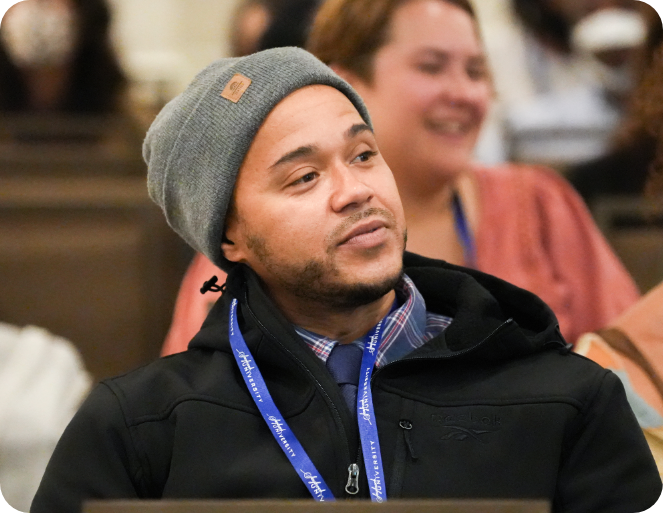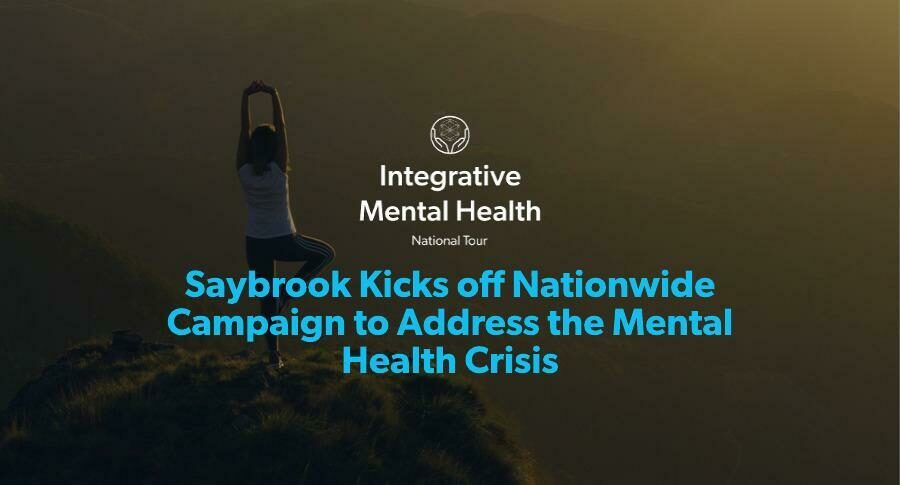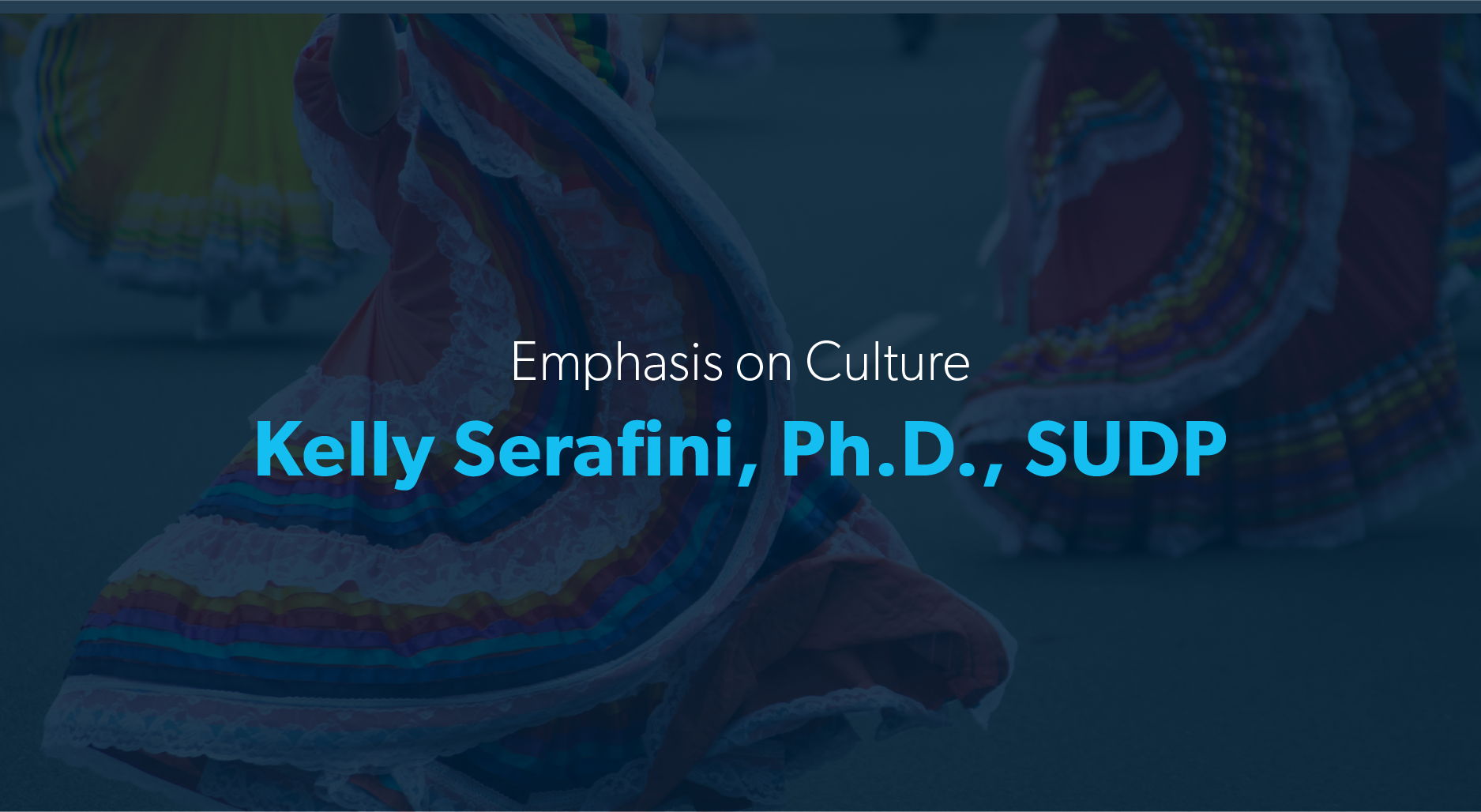Offering Hope in the Face of Complex Trauma
Guided by humanistic, existential, and transpersonal expertise, our Complex Trauma and the Healing Process Specialization program rises to meet the need for humanistic and integrative approaches to trauma-related issues. You will navigate a spectrum of interconnected considerations for those suffering from the effects of trauma. In the Complex Trauma and the Healing Process Specialization program, you will learn to be a compassionate and effective healer for many populations, including seniors, military veterans, prisoners, first responders, marginalized populations, and those suffering with chronic illness and substance abuse. Within the curriculum, you will study the foundational aspects of trauma and complex trauma, their manifestations on a person’s psychological, social, physical, and spiritual health, trauma from domestic violence, combat, sexual and physical abuse, psychological abuse, and neglect.
Saybrook University is accredited by the WASC Senior College and University Commission (WSCUC), but the Complex Trauma and the Health Process Specialization does not have programmatic accreditation by the American Psychological Association (APA). Saybrook University’s Ph.D. in Clinical Psychology aligns with program requirements for professional licensure in several states. You will find more information on licensure on the professional licensure and certification disclosures page.
Our Mission
The Department of Humanistic Clinical Psychology cultivates innovative, multidisciplinary, socially and community engaged scholar-practitioners through rigorous education and training that values the whole person within their unique context, including the creative, spiritual, psychological, and sociocultural dimensions of human beings.
Bachelor’s and Master’s Applicants Accepted
The Ph.D. in Clinical Psychology program welcomes applicants from multiple academic pathways, whether you’re starting with a B.A./B.S. degree or an M.A./M.S. degree. If you enter with a bachelor’s degree or without prior graduate coursework in psychology or a related discipline, you’ll complete the required M.A. in Clinical Psychology coursework as part of the Ph.D. program, building a strong foundation for advanced doctoral training.
If you already have a master’s degree in psychology or a related field, you may be eligible to transfer up to 15 credits toward elective requirements, allowing you to progress through the program more efficiently. Depending on your prior academic coursework and entry pathway, the total credits required to complete the Ph.D. program range from 100–109*.
*Credits required vary based on prior academic coursework and degree background.
Ph.D. in Clinical Psychology: Complex Trauma and the Healing Process Specialization Job Outcomes
The Clinical Psychology Ph.D.: Complex Trauma and the Healing Process Specialization program is intended to prepare graduates for trauma-informed clinical practice. If you are interested in becoming a licensed psychologist or entering into private practice, you will need to verify the licensure requirements of your state. You may also view notes on licensure here [LINKTO: Licensure page].
Additionally, you may also explore a variety of roles at health care facilities and beyond, including:
- Clinical director
- Research scientist
- Policy adviser
- Health care administrator
- Nonprofit director
- University professor
- Trauma researcher
Other Clinical Psychology Programs
Interested in another specialization in clinical psychology? We offer multiple doctoral programs that may align more closely with your goals.
- Ph.D. in Clinical Psychology
- Ph.D. in Clinical Psychology: Advanced Psychological Assessment Specialization
- Ph.D. in Clinical Psychology: Applied Psychophysiology Specialization
- Ph.D. in Clinical Psychology: Consciousness, Spirituality, and Integrative Health Specialization
- Ph.D. in Clinical Psychology: Creativity, Innovation, and Leadership Specialization
- Ph.D. in Clinical Psychology: Existential and Humanistic Psychology Specialization
- Ph.D. in Clinical Psychology: Jungian Studies Specialization
- Ph.D. in Clinical Psychology: Specialization in Teaching and Advanced Research (STAR)
Program Components
Admissions Requirements
The program is available to students matriculating at Saybrook and to non-matriculating students who have a master’s degree in a human service discipline. You may apply to the Ph.D. in Clinical Psychology program with a completed B.A., B.S., M.A., or M.S. from an accredited college or university. A bachelor’s or master’s degree in psychology or a related discipline is recommended; however, non-psychology majors will be considered for admission. Applicants for the Ph.D. in Clinical Psychology: Complex Trauma and the Healing Process Specialization degree must submit the following documents:
- An official transcript from an accredited university demonstrating successful completion of a B.A., B.S., M.A., or M.S., with a 3.0 GPA or better
- Resume or CV
- Personal statement
- One letter of recommendation from a professional reference
Sample Courses
Perspectives and Foundations of Traumatic Stress
In this three-credit course, you are given an introduction to the historical and foundational aspects of trauma and complex trauma, how they are conceptualized, and their impact on a person’s psychological, social, physical and spiritual well-being. Specific impacts of traumatic stress at different points in the lifespan will be explored. Current psychological, alternative/complementary, and biomedical perspectives on trauma are integrated into this richly packed journey of knowledge.
Trauma: Mind, Body, and Spiritual Dynamics
In this three-credit course, you evaluate and engage in an exploration of the theory and effects of trauma within the mind and body. Spiritual dynamics involved in traumatic stress, as well as implications for psychospiritual growth, when affected by traumatic stress are explored.
Traumatic Experiences in Relationships
In this three-credit course, you will expand their conceptualization of trauma to include the multidimensional consequences of relational trauma for individuals’ well-being and implications for treatment. The course will also focus on the most common forms of traumas that occur in relationships: interpersonal violence such as domestic violence, incest, sexual and physical abuse, as well as psychological abuse and neglect. It will critically review how relational trauma across the lifespan can impact a person’s sense of self, relationship with her or his body, and with other people.
Cost
Saybrook wants you to have the information you need to make an informed decision about your academic and career aspirations. Our cost calculator provides an estimated cost of attending Saybrook to earn your Ph.D. in Clinical Psychology: Complex Trauma and the Healing Process Specialization degree.
Catalog
Please refer to our academic catalog for more information on the Ph.D. in Clinical Psychology: Complex Trauma and the Healing Process Specialization program.
Program Learning Outcomes
- Learn traditional conceptualizations and approaches to complex trauma, as well as alternative and creative understandings, including spiritual, somatic, and cultural perspectives.
- Develop a trauma-inform, multicultural perspective that is fully appreciative of the diversity that exists concerning the impact of trauma on the human mind, body and spirt within a pluralistic society.
- Gain a humanistic understanding of the human condition while providing knowledge about the established foundations of trauma, and its intricate, complex, and often tragic impacts at an individual, societal, organizational and cultural level.
- Learn both conventional and non- conventional healing processes for traumatic stress that focus on the human mind, body and spiritual dimensions of individuals.
Career Outcomes
Saybrook University prepares you to make an impact in a variety of high-demand careers. Below, you will find possible career options and salaries associated with this degree.
Data is pulled by a third-party tool called Lightcast, which includes data from sources including the U.S. Bureau of Labor Statistics, the U.S. Census Bureau, online job postings, and other government databases. The information below represents a regional and national career outlook related to this degree program*. Saybrook University is dedicated to assisting you in achieving your career goals.
*Many degree programs are intended to fulfill licensure requirements in specific states. The data shown here may not represent the state where you currently reside. For more information on how this program is applicable to the requirements of your state, please speak with your admissions specialist.
Invest in Your Future
Saybrook University remains committed to keeping higher education affordable and accessible. Our Financial Aid Department is ready to offer guidance and support in determining suitable financial assistance tailored to your needs, including potential scholarship opportunities, grants, and more.
Faculty
Department Core Faculty
Vanessa Brown, Psy.D.
Associate Chair
Department Core Faculty
Adam Duberstein, Psy.D.
Department Core Faculty
Inma Ibanez, Ph.D.
Department Core Faculty
Betz King, Psy.D.
Department Core Faculty
Isaac G. Martinez, Ph.D.
Department Core Faculty
Cynthia Palmisano, Psy.D.
Department Core Faculty
Coordinator, Advanced Assessment Specialization
Susan Rarick, Ph.D.
Department Core Faculty
Director of Clinical Training and Field Placement
Portia Rawles, Psy.D.
Department Core Faculty
Director, Complex Trauma and the Healing Process Specialization
Kelly Serafini, Ph.D.
Department Core Faculty
Bonnie Settlage, Ph.D.
Department Core Faculty
Drake Spaeth, Psy.D.
Department Core Faculty
Director, Existential-Humanistic Psychology Specialization
Interim Coordinator, Jungian Studies Specialization
Associated Faculty
Kimberley Cox, Ph.D.
Associated Faculty
Jennifer DeDecker, Ph.D.
Associated Faculty
Randy Heinrich, D.M.
Associated Faculty
Robert Cleve, Ph.D.
Associated Faculty
Director of Creativity, Innovation, and Leadership Specialization
Walker Ladd, Ph.D.
Associated Faculty
Chair of the Department of Research
Director of Specialization In Teaching and Advanced Research
Marina Smirnova, Ph.D.
Associated Faculty
Director of Consciousness, Spirituality, and Integrative Health Specialization
Dr. Eric Willmarth
Associated Faculty
Director, Applied Psychophysiology Specialization
Adjunct Faculty
Todd Dubose, Ph.D.
Adjunct Faculty
Nathaniel Granger, Jr., Psy.D.
Adjunct Faculty
Louis Hoffman, Ph.D.
Adjunct Faculty
Amy Johanson, Psy.D.
Adjunct Faculty
Silvio Machado, Ph.D.
Adjunct Faculty
Cacky Mellor, Ph.D.
Adjunct Faculty
Melissa Oleshansky, Ph.D.
Adjunct Faculty
Megan Peitrucha, Psy.D.
Adjunct Faculty
Grant Rich, Ph.D.
Adjunct Faculty
Diana Rivera, Ph.D.
Adjunct Faculty
Michael Sakuma, Ph.D.
Adjunct Faculty
Kirk Schneider, Ph.D.
Adjunct Faculty
Drew Smith, Ph.D.
Adjunct Faculty
Amy Taylor, Ph.D.
Adjunct Faculty
University Learning Experience
Our Complex Trauma and the Healing Process Specialization program is a hybrid online program. Coursework is completed online and augmented with two five-day, in-person Residential Learning Experiences (RLE) per year. RLEs occur at the beginning of the Fall and Spring semesters in California. If you are a resident of Washington state, there is an additional RLE per term to meet the increased in-person requirement hours. Every odd-numbered year, the RLE takes place during a larger Community Learning Experience (CLE), encouraging interaction with the larger Saybrook community. In this program, you will begin your studies with a virtual Welcome Week. Welcome Week activities, including a program orientation, are held online during the week before the start of Fall and Spring semesters.

Clinical Psychology Faculty
Saybrook’s Clinical Psychology faculty are practitioner-scholars dedicated to advancing their field through continued practice and comprehensive instruction. Meet some of our faculty members below.
UNBOUND: Humanistic Clinical Psychology
Graduate clinical psychology programs designed for those who wish to utilize a variety of evidence-based psychological interventions and approaches in clinical settings.



Ready to Take the Next Step?
Submit an inquiry and one of our admissions specialists will connect with you to answer your questions and guide you through next steps.
























